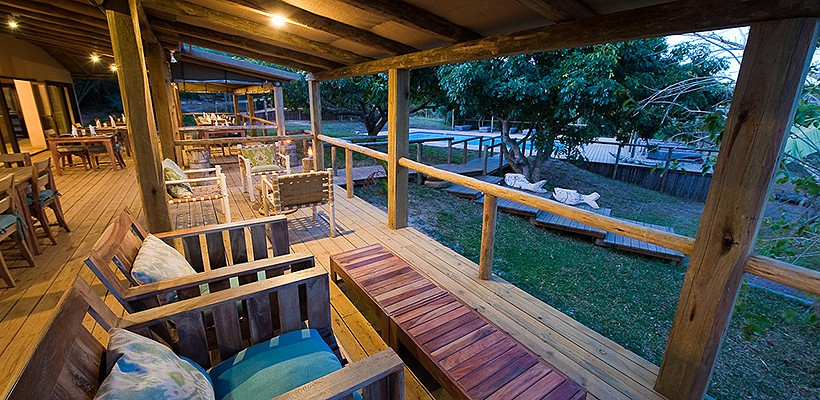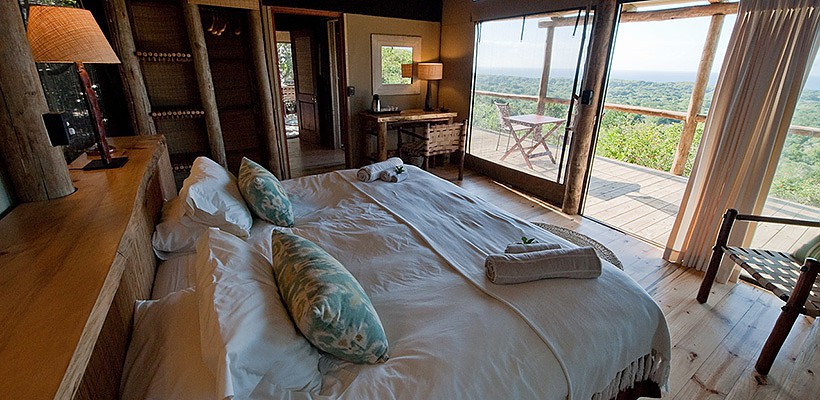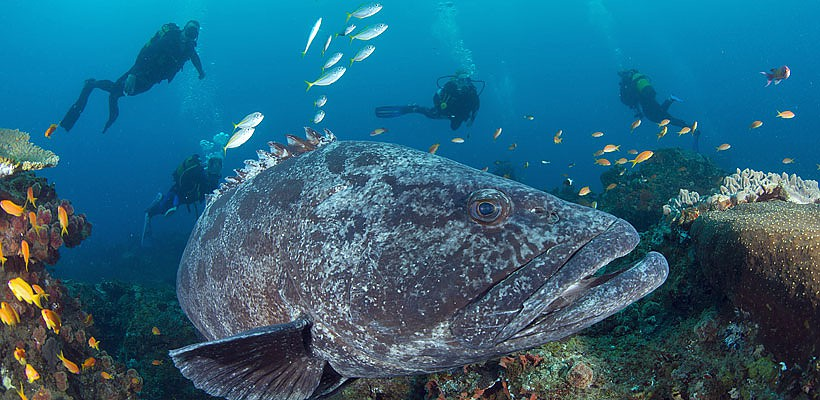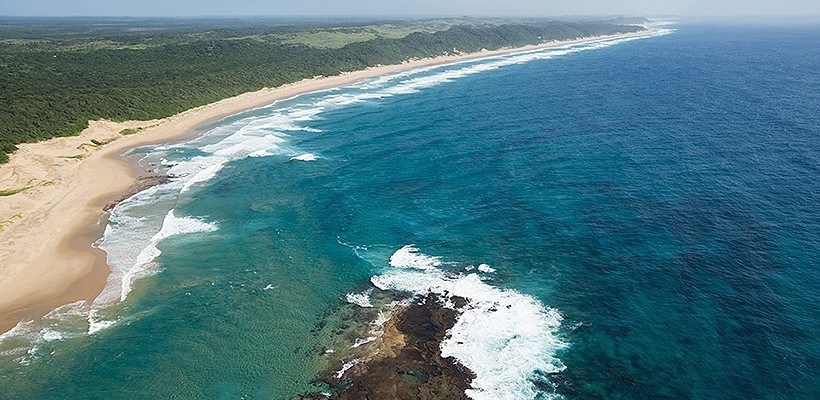Rocktail Beach Camp (Maputaland Coastal Forest Reserve, KwaZulu-Natal) South Africa
Location:
Rocktail Beach Camp is located about 30 minutes drive from Rocktail Bay Lodge and is situated at the current Rocktail Dive Centre.
The camp is set back in and shaded by the sanctuary of the lush coastal forest that covers the ancient dunes that make up the edge of South Africa's north-east coast.
From a scuba diving perspective, Rocktail Bay is unique. Not only is the diving conducted within a Reserve and World Heritage Site along unspoiled reefs, but divers have the luxury of knowing that they alone have access to these sites and are the only underwater visitors along this stretch of the coastline.
Accommodation:
The camp consists of 12 rooms (including 3 family units), most of which have a view of the ocean.
All have en-suite bathrooms, open-feel indoor shower and overhead fans. Rocktail Beach Camp also has a central dining room, bar and lounge with large wrap around veranda.
A television set and iPod are available in the camp's main area for guests' enjoyment, as well as a large pool.
• 5 twin bedded rooms • 4 double bedded rooms • 3 Family units – consisting of 1 double bed in 1 room and 2 x ¾ beds in the 2nd room. Each family unit accommodates maximum 2 adults and 2 children and the family shares a bathroom. • En-suite bathrooms with an open feel indoor shower • Fans • The following amenities are provided: bath towels, hand towels, pool towels, torch, laundry bag, mosquito coil, insect repellent and bird list as well as soap, shampoo and insect repellent • Safe in room
Activities:
This is not a traditional 'big game' area, but the camp is situated within a pristine coastal forest reserve which is interspersed with rolling grasslands and waterberry/palm savannah. This lush area abounds with a variety of animals, birds and plant life that provide a natural counterpoint to the bushveld.
Common reedbuck frequent the marshes and grasslands and the red duiker lives in the forest areas. Hippo are sometimes found in freshwater lakes, while whales and dolphins are often seen offshore. Birding is outstanding, with a number of special coastal forest species - Green Twinspot, Green Malkoha, Grey Waxbill, Purple-crested and Livingstone's Turacos, Red-capped Robin-chat and the jewel-like African Emerald Cuckoo in the forests, and Rosy-throated Longclaw in the open grasslands. The reef systems here are amongst the most pristine in the world, boasting healthy soft and hard corals. Large numbers of the butterfly fish and triggerfish families are seen on every dive, interspersed with clown triggerfish, Moorish idol, bannerfish, coachman, pencilled, powder-blue and blue banded surgeonfish, firegoby and scissortail.
At one site we are lucky enough to have regular sightings of the rockmover wrasse, while various eels, such as honeycomb morays, and black-cheek, are commonly seen. Marbled electric rays, blue-spotted and round ribbontail rays are common representatives of this family while the occasional manta and spotted eagle ray have also been sighted.
Sharks are sighted at intervals, including great hammerheads, tiger sharks, blacktip reef sharks and the enormous whale shark. Large numbers of pregnant spotted ragged-tooth sharks (also known as grey nurse sharks) appear in the area from late November until March and Rocktail Bay Lodge assists the Natal Sharks Board in monitoring and understanding what drives the arrival of this species in the area.
The site most often frequented by these sharks is only in 10m of water and as such can be enjoyed by both divers and snorkelers. The advent of winter heralds the arrival of whales in the seas off Rocktail.
Both humpback and southern right whales are recorded, with humpbacks the more commonly seen species. Finally, green and loggerhead turtles are regularly seen, while leatherback and hawksbill turtles are occasionally encountered. October to March has loggerhead and leatherback turtles come ashore at night to lay their eggs.
Accommodation Rates:- Please contact us for a quote and suggested itinerary.



